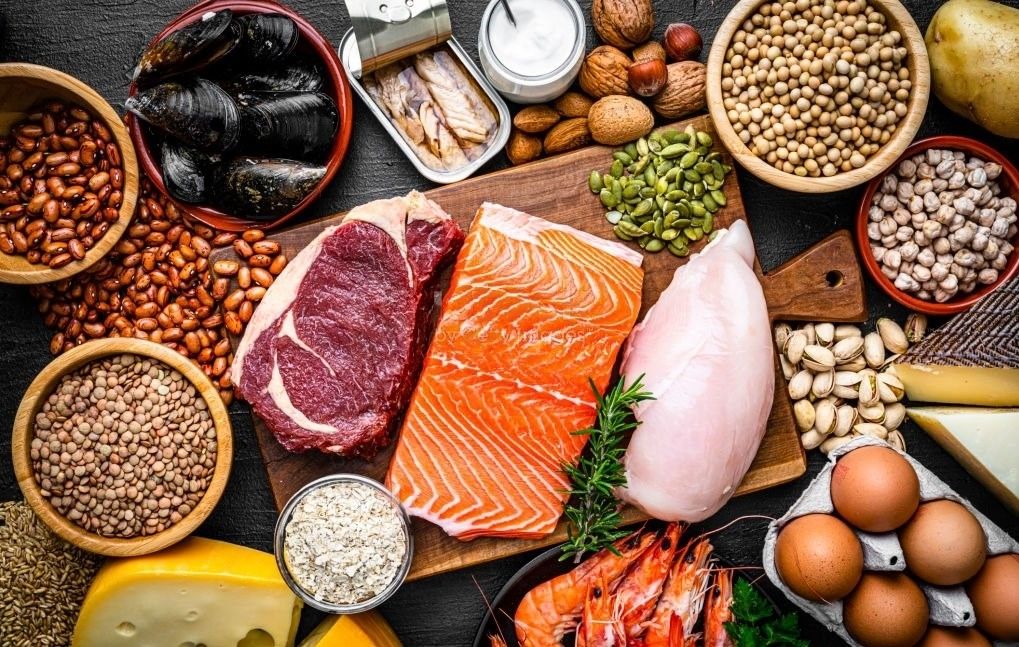Plant Protein vs Animal Protein: Which Is Better for Weight Loss in Women?
Plant proteins offer fiber and nutrients, while animal proteins provide complete protein and specific nutrients, making both beneficial for weight management.

When it comes to weight loss, diet plays a crucial role. Protein, in particular, is known to be essential for weight management as it helps control appetite, promotes satiety, and supports muscle maintenance and repair. However, the source of protein can vary, with plant-based and animal-based options available. In this article, we will explore the scientific research surrounding plant protein and animal protein, their impact on weight loss in women, and provide valuable insights to help women make informed decisions about their protein choices for effective weight management.
Understanding Plant Protein and Animal Protein
1.Plant Protein: Plant proteins are derived from sources such as legumes (beans, lentils), soy products (tofu, tempeh), grains (quinoa, amaranth), nuts, and seeds. They are typically lower in saturated fat and cholesterol, higher in fiber, and contain a variety of beneficial nutrients and phytochemicals.
2. Animal Protein: Animal proteins come from sources like meat, poultry, fish, eggs, and dairy products. They provide complete protein, meaning they contain all essential amino acids required by the body. Animal proteins are generally rich in vitamin B12, iron, zinc, and other essential nutrients.
Protein and Weight Loss in Women
1.Satiety and Appetite Control: Protein has a high satiety value, meaning it helps to keep you feeling full and satisfied after a meal. This can prevent overeating and aid in weight loss. Both plant and animal proteins can contribute to satiety, as long as they are consumed in adequate amounts.
2. Muscle Maintenance and Metabolism: Protein is crucial for maintaining muscle mass during weight loss. Preserving muscle mass is important as it helps maintain a higher metabolic rate, allowing the body to burn more calories even at rest. Both plant and animal proteins can support muscle maintenance when consumed as part of a balanced diet.
3. Nutrient Density and Fiber: Plant proteins offer the added benefit of being nutrient-dense and often high in fiber. These qualities can promote overall health, digestion, and weight management. The fiber content in plant proteins can also contribute to increased satiety and improved gut health.
Factors to Consider in Choosing Protein Sources for Weight Loss
1.Nutrient Composition: While both plant and animal proteins can contribute to weight loss, it is important to consider the overall nutrient composition. Plant proteins often provide additional fiber, vitamins, minerals, and phytochemicals, making them beneficial for overall health. Animal proteins, on the other hand, tend to be higher in certain nutrients like vitamin B12 and iron.
2. Calorie Density: Plant proteins can be lower in calorie density due to their higher fiber content, which can aid in weight management. However, it is crucial to be mindful of the preparation methods and added fats when consuming plant-based protein sources, as they can significantly impact the calorie content of the overall meal.
3. Personal Preferences and Sustainability: Personal preferences, cultural factors, and ethical considerations may also influence the choice between plant and animal proteins. It is important to choose protein sources that align with individual preferences and values to ensure long-term adherence to a healthy eating plan.
SUMMARY
Both plant protein and animal protein can be effective for weight loss in women when incorporated into a balanced diet. Plant proteins offer additional benefits such as high fiber content and nutrient density, while animal proteins provide complete protein and specific nutrients. Ultimately, the best protein choice for weight loss depends on individual preferences, nutritional needs, and sustainability.
By focusing on a varied and balanced diet, women can meet their protein needs while also benefiting from a range of essential nutrients. Consulting with a registered dietitian or healthcare professional can provide personalized guidance and support in choosing the right protein sources and creating a well-rounded meal plan for weight management.
Jayti Shah is a Clinical Nutritionist with a master's degree in Clinical Nutrition and Dietetics. She is a member of the Indian Dietetic Association (IDA). Over the last 9 years, she has helped 400 clients in their clinical and weight loss journeys. She works with SocialBoat as a nutrition consultant.
At SocialBoat, we offer custom diet plans and guided workouts to help you achieve your goals in a 360-degree approach. Our gamified experience ensures that you don’t find workouts boring and we reward you for being consistent with your efforts.

REFERENCES
- Leidy HJ, Clifton PM, Astrup A, et al. The role of protein in weight loss and maintenance. Am J Clin Nutr. 2015;101(6):1320S-1329S.
- Pasiakos SM, Agarwal S, Lieberman HR, Fulgoni VL. Sources and amounts of animal, dairy, and plant protein intake of US adults in 2007-2010. Nutrients. 2015;7(8):7058-7069.
- Mangano KM, Sahni S, Kiel DP, Tucker KL, Dufour AB, Hannan MT. Dietary protein is associated with musculoskeletal health independently of dietary pattern: The Framingham Third Generation Study. Am J Clin Nutr. 2017;105(3):714-722.
- Rosell M, Appleby P, Spencer E, Key T. Weight gain over 5 years in 21,966 meat-eating, fish-eating, vegetarian, and vegan men and women in EPIC-Oxford. Int J Obes. 2006;30(9):1389-1396.
- Huang RY, Huang CC, Hu FB, Chavarro JE. Vegetarian diets and weight reduction: A meta-analysis of randomized controlled trials. J Gen Intern Med. 2016;31(1):109-116.
- Kristensen NB, Madsen ML, Hansen TH, et al. Intake of macro- and micronutrients in Danish vegans. Nutr J. 2015;14:115.
- Dhillon J, Craig BA, Leidy HJ, et al. The effects of increased protein intake on fullness: A meta-analysis and its limitations. J Acad Nutr Diet. 2016;116(6):968-983.
- Satija A, Bhupathiraju SN, Rimm EB, et al. Plant-based dietary patterns and incidence of type 2 diabetes in US men and women: Results from three prospective cohort studies. PLoS Med. 2016;13(6):e1002039.
- O'Keefe SJ, Li JV, Lahti L, et al. Fat, fibre and cancer risk in African Americans and rural Africans. Nat Commun. 2015;6:6342.
